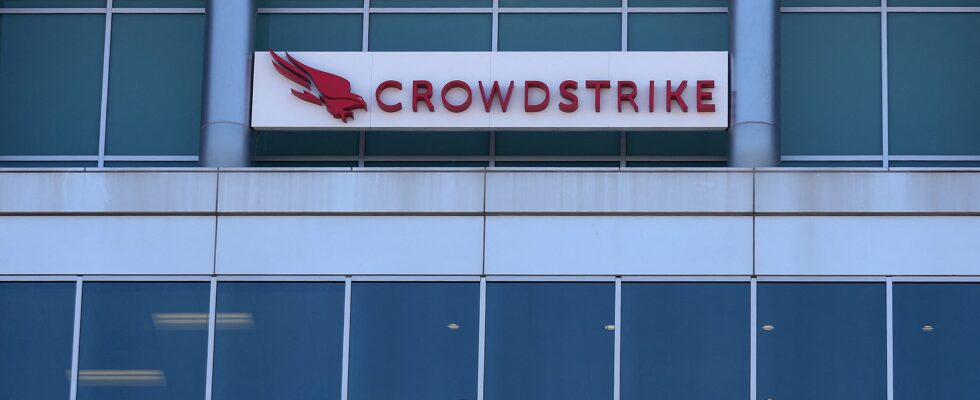It’s time to take stock. Delta Air Lines is set to seek damages after losing $500 million in the global computer outage on July 19, its CEO said 10 days later. “We’re looking to make sure that we’re compensated however they decide for what they’ve cost us,” he said, referring to U.S. companies Microsoft and CrowdStrike, an antivirus company that was at the center of a giant shutdown.
Delta’s CEO noted that the global outage cost the company “half a billion dollars over a five-day period,” including “lost revenue, but also tens of millions of dollars per day in compensation and hotels” for passengers who were unable to board their planes. The airline had to cancel nearly 7,000 flights and more than 176,000 customers have requested compensation or a refund.
On Friday, July 19, a software update from cybersecurity group CrowdStrike on Microsoft’s Windows operating system caused computer systems to malfunction around the world, from airports to hospitals. According to Microsoft, approximately 8.5 million devices were affected by the outage, with users experiencing “blue screens of death” that made it impossible to reboot.
“A bug in the program”
As a reminder, CrowdStrike’s Falcon software is used by companies around the world to better identify and counter malware and security vulnerabilities. “CrowdStrike, founded in 2011, is a cloud-based cybersecurity platform whose software is used by many industries around the world to protect against hackers and external breaches,” says the New York Times. And by the numbers: CrowdStrike serves approximately 29,000 customers and has annual revenues of approximately $4 billion.
So what happened? In an incident report on Wednesday, CrowdStrike said the bug had been pushed to millions of Windows computers and that it would change how it handles updates going forward. “Due to a bug in the validator, one of the two updates was validated that contained problematic data,” CrowdStrike said. The company’s CEO, George Kurtz, was summoned by Congress to provide an explanation. “We understand that our work is not yet complete and we remain committed to restoring all affected systems,” he said in his LinkedIn post.
Shareholders file complaint
Faced with the extent of the damage, a group of CrowdStrike shareholders decided to file a lawsuit against the company in a federal court in Austin, Texas, where the company is headquartered. The businessmen accuse the company of making “false and misleading” statements about its software testing. “The complaint alleges that CrowdStrike executives defrauded investors by leading them to believe that the company’s software updates had been properly tested,” reports the BBC.
CrowdStrike, for its part, denies the allegations and says it will defend itself against the proposed class action lawsuit. In a statement released Wednesday, a spokesperson for the Austin-based company added: “We believe this case is without merit and will vigorously defend the company.” If shareholders are up in arms against CrowdStrike, it’s because the company’s share price fell 32% in the 12 days following the incident, resulting in a $25 billion (£14.5 billion) loss in market value. Enough to make your nerves spin.
